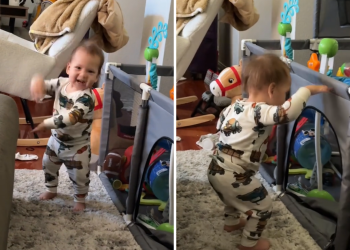The leaders of many of Europe’s biggest countries came to Paris on Monday in an effort to forge a strategy for their own security, as President Trump’s envoys prepared for talks with Russia over ending the war in Ukraine without them.
The meeting in Paris was pulled together hastily after the first visit to Europe last week by Vice President JD Vance and Defense Secretary Pete Hegseth, which left European leaders alarmed by both the tone and message of the new Trump administration and what it might hold for the continent.
European leaders were shocked by the hostility of Mr. Vance’s scathing speech in Munich criticizing Europe’s exclusion of far-right groups from power, and the sudden American plans to begin peace talks with Russia in Saudi Arabia, starting on Tuesday, without the presence of Ukrainian or European leaders.
The meetings with the new U.S. officials sparked fear that the United States wants to pull thousands of troops out of Europe, as Defense Secretary Pete Hegseth suggested in Brussels last week, but on a timetable that would leave Europe vulnerable to an aggressive Russia, and that Mr. Trump will cut a deal with Mr. Putin over the heads of Ukrainians and Europeans.
“Europe’s security is at a turning point,” said Ursula von der Leyen, the president of the European Commission, on X after arriving in Paris on Monday. “Yes, it is about Ukraine — but it is also about us. We need an urgency mind-set. We need a surge in defense. And we need both of them now.”
The meeting, called by President Emmanuel Macron of France at the Élysée Palace, was an initial effort to discuss a more coordinated and collective response to the Trump administration. Mr. Macron and Mr. Trump held a 20-minute phone call before the meeting began, the French said.
At the meeting, the European leaders discussed what they are willing to commit to secure any peace deal over the war in Ukraine in the short term, and in the long term, how to secure the continent as it faces an expansionist Russia and the predicted withdrawal of the assurance of American support.
Leaders discussed issues including military spending and how to guarantee Ukraine’s security once some sort of permanent cease-fire or peace deal is reached, including the possibility of troop commitments in Ukraine.
Trump officials have said that they expect the Europeans to be responsible for the main financial and military support for Ukraine in the future, but there is enormous vagueness around the whole issue. Europeans want to be at the negotiating table, if one is ever created.
As a former NATO official, Camille Grand, said, “Europeans cannot reasonably be expected to provide the security guarantees for a deal they are not negotiating.”
After the meeting, Chancellor Olaf Scholz of Germany said that any debate now on sending peacekeepers to Ukraine was “completely premature” and “highly inappropriate” while the war is ongoing.
Mr. Scholz said he was “a little irritated” about the peacekeeping debate “at the wrong time.” His views are shared by Poland and Spain, among other nations, especially given the vagueness about what any security guarantee would mean.
Mr. Scholz, like Donald Tusk, the prime minister of Poland, warned against dividing Europe from the United States despite disagreements. “There must be no division of security and responsibility between Europe and the USA,” Mr. Scholz said. “NATO is based on the fact that we always act together and share the risk, ensuring our security. This must not be called into question.”
Agreeing, Dutch Prime Minister Dick Schoof said he did not look at the American messages of the past few days as a sign of disengagement, but more as a strategy to push Europe to increase its own military spending and get more involved in Ukrainian security. “We are sending the message back that we are in it together,” Mr. Schoof said.
Mr. Tusk said again that Poland would not send troops into Ukraine but would support countries that chose to do so. And he warned that “if someone seriously wants to talk about guarantees for Ukraine, they must be 100 percent sure that they will be able to fulfill such guarantees and obligations.”
Prime Minister Mette Frederiksen of Denmark said that such an informal meeting is “not for decision-making,” but “the most important thing from the meeting tonight is the need for all of us to step up when it comes to spending in defense. Russia is not only a threat against Ukraine but all of us.”
The Paris meeting comes the same day that Secretary of State Marco Rubio arrived in Riyadh, Saudi Arabia. The State Department said he would be joined by Mike Waltz, the national security adviser, and Steve Witkoff, Mr. Trump’s Middle East envoy.
They are supposed to discuss with Russian officials the future of the Russia-Ukraine war, but even those talks are more about how to set up future peace talks rather than about the substance of them.
President Volodymyr Zelensky of Ukraine was in the United Arab Emirates on Monday for a track of negotiations with Russia that is separate from the Trump administration’s effort, focusing on prisoner exchanges and returning Ukrainian children from Russia.
He reiterated that Ukraine would accept no terms negotiated between Russia and the Trump administration without Ukrainian participation, and confirmed that Ukrainian representatives would not be at the talks in Saudi Arabia.
“The issue of a peacekeeping contingent is being discussed in France,” Mr. Zelensky told journalists in Abu Dhabi. “Emmanuel told me he would share all the details,” he said, referring to France’s president. “If we talk about a peacekeeping contingent, then what will be its size? Where will it be deployed? Which countries will be part of it? How will they be armed? It is crucial not to lose the U.S. in this process in one way or another.”
Mr. Zelensky also said that when it comes to making a deal with Russia, “Europe must be at the negotiating table — I don’t know in what format, but this is very important for us.”
Ivo H. Daalder, a former American ambassador to NATO, who was in Munich, said that Mr. Zelensky and the Europeans “have realized they’re in this boat together and can no longer rely on the U.S., and that the concern that Trump and Putin will do a deal over their heads is real.”
“So they have to depend on each other, and Europeans have to decide whether to step up to help the Ukrainians continue the war, if the proposed deal is a bad one, or to throw Kyiv under the bus, which would be appeasing Putin,” Mr. Daalder said. “They now realize that they have no real choice and that they have to back Ukraine, and that’s what this meeting is all about.”
But already there were fissures. The Paris talks included leaders from Germany, Britain, Italy, Poland, Spain, the Netherlands and Denmark, as well as the president of the European Council, the president of the European Commission and the secretary general of NATO.
There was criticism from frontline European states who were not invited, with one senior Baltic official saying that Mr. Macron’s initiative splits the unity of the European Union, and that the meeting should have been called by President António Costa of the European Council, not by Mr. Macron.
“In public, Europeans will say we all must stand together, but this selective meeting is not a good start to a united Europe on these issues,” said Mary Elise Sarotte, a diplomatic historian who wrote an influential book on the early days of NATO expansion, “Not One Inch.”
As he often does, Mr. Macron seized on a perceived vacuum in European leadership to call this informal meeting to talk about a collective response to what many perceive as an American retreat from decades of security responsibility in Europe, in order to focus on Asia and domestic challenges.
Mr. Macron has made calls for increased European sovereignty and capacity for self-defense a hallmark of his presidency, which he has sometimes called “strategic autonomy,” less reliant on Washington.
This meeting was expected to be the first of many among European leaders in the coming weeks, an adviser to Mr. Macron said, adding that the meetings would include other countries in the future.
On Sunday, Prime Minister Keir Starmer of Britain said in an article published in The Daily Telegraph that he was “ready and willing to contribute to security guarantees to Ukraine by putting our own troops on the ground if necessary.”
After the meeting, Mr. Starmer said for any European deployment “there must be a U.S. backstop, because a U.S. security guarantee is the only way to effectively deter Russia from attacking Ukraine again.”
Mr. Macron has been speaking for months to European leaders about forming a cease-fire buffer force in Ukraine to ensure that any peace deal with Russia is maintained. But his original idea was to have European forces far from the front lines, to help Ukrainians with training and logistics.
Military experts have said that it is first necessary to decide what kind of force is required, with what kind of resources, and what happens if they are attacked by Russia. This is why European leaders have said that they must have guarantees of American involvement, even if American troops are not on the ground, for key weapons systems, air defense, air cover, satellite intelligence and the like.
European leaders also discussed the acceleration of European defense capabilities, as many now believe that the United States will withdraw tens of thousands of American troops from Europe.
Just 23 of 32 NATO members currently spend at least 2 percent of GDP on defense — after having vowed to do so in 2014. And NATO has made it clear that 2 percent must be “a floor, not a ceiling,” and more must be spent. A new spending goal will be set at the NATO summit meeting this summer and is likely to be 3 percent or 3.5 percent.
Andrew E. Kramer contributed reporting from Kyiv, Ukraine, Ségolène Le Stradic from Paris, Claire Moses from London and Edward Wong from Washington, D.C.




















